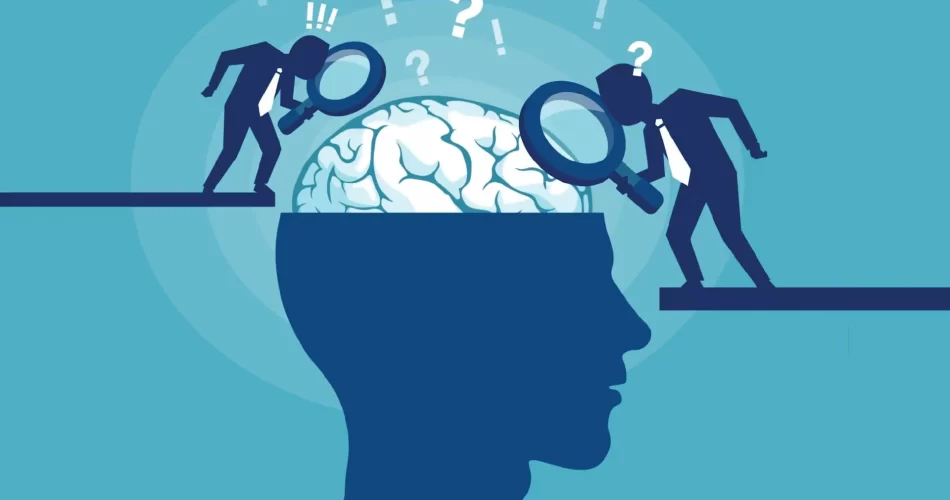Last Updated on 4 March 2024 by Vanessa Thoko
Here are some signs that your mental health may be bad:
- Feeling sad or down for more than two weeks.
- Losing interest in activities you used to enjoy.
- Having trouble sleeping or sleeping too much.
- Changes in appetite or weight.
- Feeling tired all the time.
- Having difficulty concentrating or making decisions.
- Feeling anxious or irritable.
- Having thoughts of suicide or self-harm.
Mental health is an essential part of our overall well-being.
But how do you know if your mental health isn’t in the best shape?
We’re here to help you understand the signs, what to do, and the support available in South Africa.
Key Facts
- Signs of poor mental health include persistent sadness, sleep disturbances, withdrawal from social activities, and negative self-talk.
- Seeking help is crucial, and resources like trusted friends, doctors, therapists, and support groups are available.
- Helplines like SADAG and Lifeline South Africa provide support and information.
- Self-care is essential, encompassing exercise, a healthy diet, sufficient sleep, social connections, and enjoyable activities.
- Your mental health matters; don’t hesitate to seek support in South Africa’s network of resources.
Recognizing Signs Of Poor Mental Health
Emotional Indicators

- Persistent sadness or mood swings: If you find yourself feeling down most of the time or experiencing drastic mood swings, it could be a sign that your mental health needs attention.
- Feelings of hopelessness: Constantly feeling like there’s no light at the end of the tunnel is a strong indicator that something is amiss.
Behavioral Indicators

- Changes in sleep patterns: When your sleep habits change significantly, whether you’re sleeping too much or too little, it can indicate a problem with your mental health.
- Withdrawal from social activities: If you used to love being around friends and family but now prefer solitude, it’s a sign that you might be struggling.
Physical Indicators

- Frequent headaches or body aches: Stress and poor mental health can manifest as physical symptoms like persistent headaches or unexplained body aches.
- Sudden weight loss or gain: Dramatic changes in weight that can’t be attributed to diet or exercise can be a red flag.
Cognitive Indicators

- Difficulty concentrating: Finding it hard to focus on tasks and remember things can indicate that your mental health is off-balance.
- Negative self-talk and self-doubt: If you catch yourself constantly criticizing or doubting yourself, it’s time to address your mental health.
Take a moment to reflect on how these signs of poor mental health relate to your own life.
Seeking Help And Support

We understand that it can be incredibly difficult to reach out for help when you’re feeling overwhelmed.
There are many resources available, including helplines, therapists, and support groups.
Here are some tips for seeking help:
- Talk to a trusted friend or family member. Let them know what you are going through and how they can support you.
- Make an appointment with your doctor. They can assess your mental health and recommend treatment options.
- Contact a mental health professional. A therapist can teach you coping skills and help you develop a treatment plan.
- Join a support group. Support groups can provide a safe space to talk about your experiences and connect with others who understand what you are going through.
Here are some helplines that can provide support and information:
- South African Depression and Anxiety Group (SADAG): 0800 567 567
- Cipla Mental Health Helpline: 0800 456 789
- Lifeline South Africa: 0861 322 322
Self-Care Strategies

Self-care is the practice of taking care of your physical, mental, and emotional health.
It is important to make time for self-care, even when you are busy. There are many different self-care strategies that you can use.
Here are a few ideas:
- Get regular exercise: Exercise is a great way to boost your mood, reduce stress, and improve your overall health. Aim for at least 30 minutes of moderate-intensity exercise most days of the week.
- Eat a healthy diet: Eating nutritious foods gives your body the energy it needs to function properly. It can also help to improve your mood and reduce stress. Avoid processed foods, sugary drinks, and excessive amounts of caffeine and alcohol.
- Get enough sleep: Most adults need around 7-8 hours of sleep per night. When you are well-rested, you are better able to cope with stress and manage your emotions.
- Connect with others: Spending time with loved ones can help to reduce stress and improve your mood. Make time for social activities, even if it is just a quick phone call or coffee date.
- Do something you enjoy: Make time for activities that you find relaxing and enjoyable. This could be reading, listening to music, spending time in nature, or anything else that makes you happy.
Take Away
In conclusion, your mental health is just as important as your physical health.
Don’t hesitate to seek help and support if you’re facing challenges.
In South Africa, we have a growing network of resources dedicated to helping you on your journey to better mental health.
Remember, you’re not alone in this, and there’s always help available when you need it.










